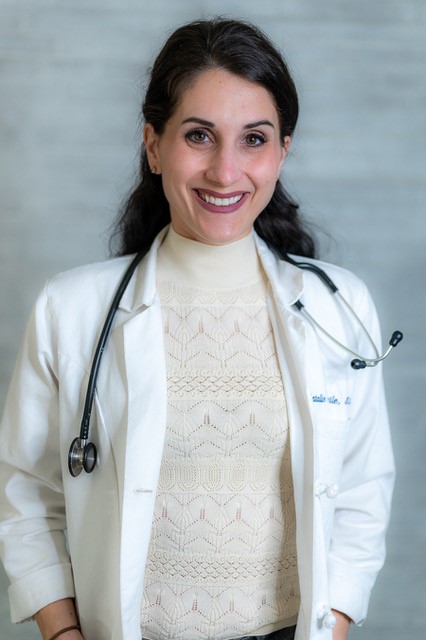
By: Natalie Gentile, MD – Family Medicine Doctor
With the new year inevitably comes new year’s resolutions. By definition, resolutions are resolute, finite, inflexible. On the other hand, there are intentions. These are more fluid ideas and goals toward which we can aim. If we don’t reach those goals, intentions can be readdressed and reset. Resolutions are either kept or not. This black and white, all or none mentality is so common in our society – and, especially in high achieving, type A individuals (like many physicians) it is the norm. When we pigeon-hole into wellness resolutions that are not sustainable, it can feel hopeless and discouraging. This, coupled with the minimal amount of time we all have for ourselves in the first place, worsens the uphill battle to check off the self-care box on our endless to-do list.

We use this term “self-care” because it is catchy and all-encompassing, but what does it really mean? The Oxford dictionary definition of “care”: the provision of what is necessary for the health, welfare, maintenance, and protection of someone or something. So, theoretically, if you are caring for yourself, you are seriously considering your health and welfare. This is what we are doing for patients everyday, but when the tables turn and we look in the mirror, how much consideration do we have leftover to give to ourselves?
“Physician heal thyself”. The quote popped into my head the other day while sitting down to write this post. I couldn’t remember where it originally came from, so I did some digging. Turns out (and maybe if you’re reading this, you’re saying “duh, Natalie”) it comes from the Bible. The excerpt in Luke where this quote resides highlights the challenge for healers to turn the healing back onto themselves. If we can’t heal ourselves, then how can we be expected to heal others?
Unfortunately, most physicians have little to no control over their work schedules. The traditional healthcare model lends itself to inflexibility when you’re at work, and immense amounts of work you then take home to play catch-up. In my direct primary care practice, where I work for myself, it allows for significantly more control over my own schedule, but even then I have to make self-care a priority. If we don’t fight for that time, then we will quickly get bulldozed over with work, family, and life commitments.
I’ve often felt like my self-care routine is like a fire drill. A day comes around that I suddenly have a block of time available, and I frantically call every massage therapist and salon in town asking for a last minute appointment. Inevitably, there never is a last minute appointment available. And I’m left feeling defeated and embarrassed. Mainly embarrassed that I didn’t plan ahead enough to carve out time for myself.
So what are some ways that we can make self-care less of a pie-in-the-sky fire drill, and more of an appointment with ourselves that we hold as sacred as a patient visit. First, I recommend scheduling it like any other commitment. Planning your workout, meditation session, hair salon visit, date-night, etc. in your calendar increases the chances you’ll stick to it. Second, know your worth in the workplace when it comes to your wellbeing. Most employers, especially in healthcare, aren’t going to go out of their way to make your self-care time a priority. But they need you more than you need them. Advocate for yourself and for your input about your schedule. Lastly, have self-compassion. The shame we feel when we don’t take care of ourselves is not going to get us anywhere. Recognize that you are not alone and that it is hard for most of us physicians to heal ourselves. The journey to self-care is non-linear. The intentions we set need to be flexible, malleable, and most importantly: realistic.

Follow Dr. Gentile on social media via @nataliegentilemd on Instagram and on Facebook. Learn more about Rebel Wellness at rebelsinwellness.com and @rebelwellnessllc on Instagram.

